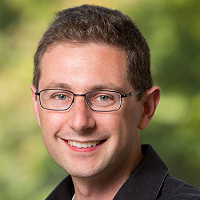News & Events / BME Seminar Series / Past Seminar Speakers / 2017-18Moriel Vansburger, PhD

BME Seminar Series Spring 2018
Thursday, May 24, 2018 at 4-5 pm
Tech L361
Host: Professor Evan Scott
Associate Professor of Bioengineering, University of California, Berkeley
Magnetic Resonance Imaging as a Molecular Tool for the Study of Heart Failure and Regeneration
Emerging treatments for heart failure including gene therapy and reparative cell therapy seek to improve cardiac function or replace lost myocardium via targeting of genetic, cellular, and tissue scale mechanisms. Within clinical settings, imaging modalities including cardiac magnetic resonance imaging (MRI) are used to assess the subsequent impact on global ventricular structure and function, and changes in dense scar tissue. Although such measurements can be performed non-invasively and serially, the macro-level imaging measurements derived from such scans reflect the aggregate effects of changes at the molecular, cellular and tissue levels. Subsequently, when promising therapies fail to demonstrate efficacy, the source of failure often remains unknown. The absence of suitable imaging methodologies represents a fundamental barrier to further development of such treatments. In our lab we utilize a first principles approach to unify changes in myocardial MRI physics properties with advanced pulse sequence design and analysis in order to transform cardiac MRI into a multi-scale molecular imaging tool for unmet needs in cardiology. Using a process of chemical exchange saturation transfer (CEST) we have designed pre-clinical methods to quantify gene transfer following adenoviral driven gene therapy, and to longitudinally quantify cell survival/proliferation following intra-myocardial implantation in mouse models of regenerative cell therapy. In addition, cardiac CEST approaches for imaging of myocardial creatine levels and endogenous contrast fibrosis imaging have been translated to clinical application in obese adults and renal failure patients on routine hemodialysis. When integrated, these approaches can enable serially non-invasive and multi-scale analysis from the level of gene expression up to whole organ function in the failing or healing heart
Learn more about Professor Moriel Vandsburger and their research here.
